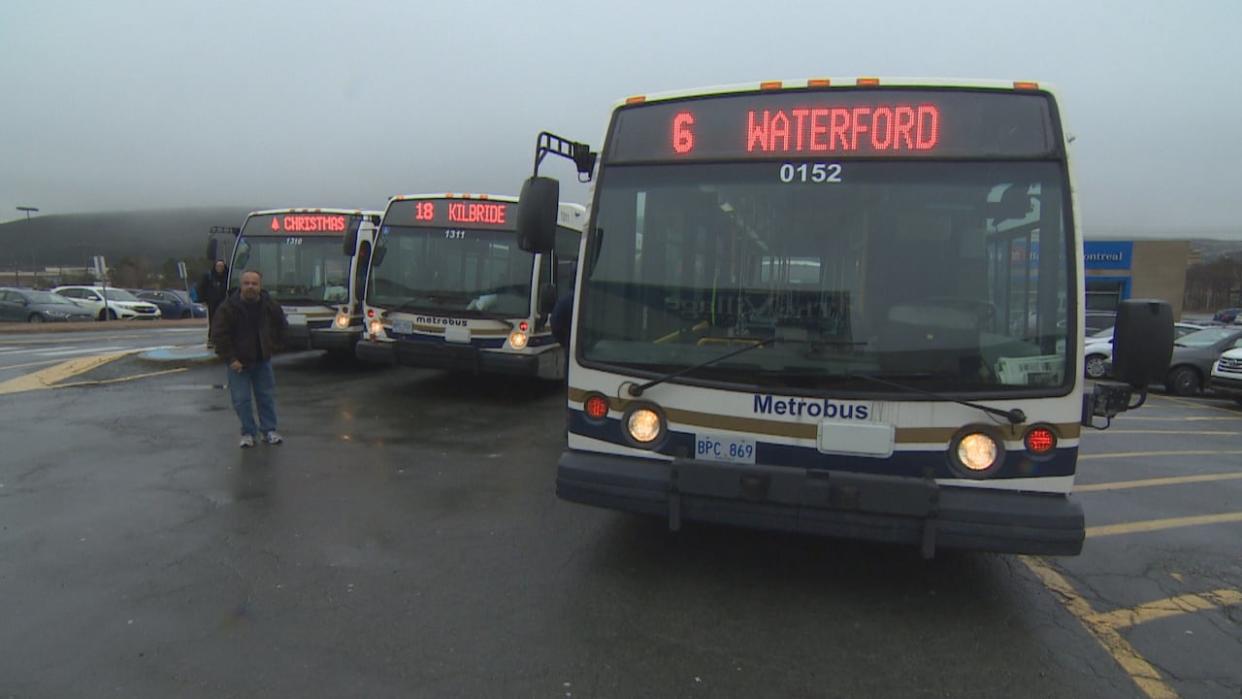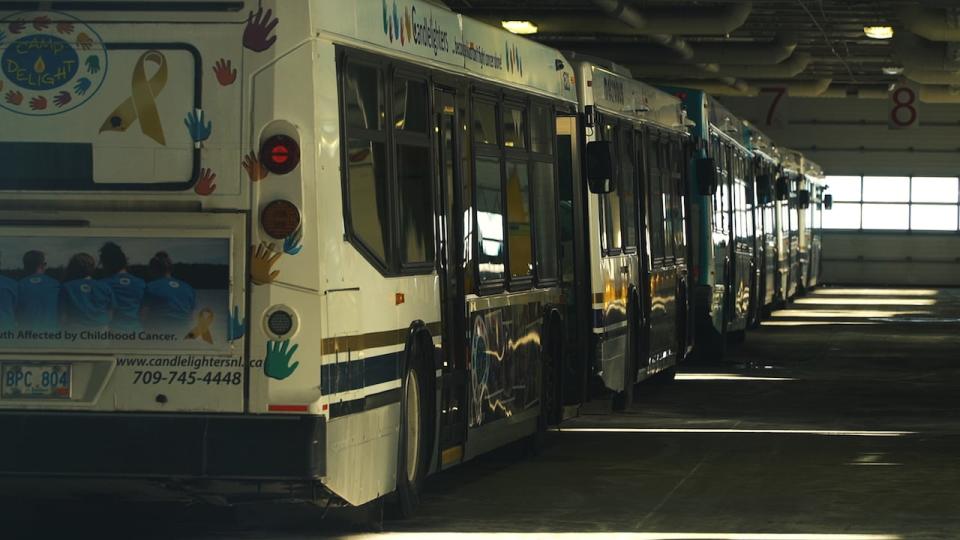Visual and verbal cues are helping Metrobus improves its accessibility


Metrobus is planning to expand on some new accessibility features, including verbal and visual cues to alert riders of upcoming stops. (CBC)
Metrobus is taking more steps toward becoming more accessible, and riders will see and hear some changes — even if they do not need to rely on them.
Over the past year, the company has seen record ridership numbers, and has even struggled to keep up with demand.
But some new-to-St. John's technology may makes things a little easier for riders.
Metrobus general manager Judy Powell told CBC News changes are coming that include more wheelchair accessible buses and adding audible announcements for upcoming stops.
"We have secured funding for a system and we expect to be going to tender in the next month or so for an onboard stop announcement system," Powell said.
"We've partnered with the CNIB (Canadian National Institute for the Blind) to implement the BlindSquare app as well, which is a wayfinding app to assist people to find their ways to the bus stops."
There is no charge for the app.
Powell said visual announcements will also run on screens and are included in the new upgrades. The announcement system will be available on all buses, she said.
As for a timeline for when that will be up and running, Powell said it's difficult to say right now without having a contractor signed on as of yet.
Currently Metrobus is running about 35 wheelchair-accessible buses out of its fleet of 55.

Expanding Metrobus routes takes time, money and planning says company general manager Judy Powell. (Mark Cumby/CBC)
Powell said more of those are coming.
"We're getting eight new buses later this year that will be wheelchair accessible and we'll be retiring six non-accessible buses," she said.
"That will also allow us to introduce our final core route as wheelchair accessible, the Route 10. That's been our goal, to certainly get all our core routes wheelchair-accessible first before we move out to some of the other routes. That will be possible by the end of the year."
As for the GoBus, there are no plans to expand that service right now but may consider it in the future, she said.
There are 18 GoBuses on the road and Metrobus relies on a partnership with a taxi firm to help with overflow during peak times.
Expanding routes takes time and planning
Expanding the overall service also relies heavily on the municipality.
In Mount Pearl's case, Mayor Dave Aker said it's a top of mind priority for his council.
"There are two routes. We understand that, in talking with Metrobus, that they are pretty full," he said.
"The changing economy, some of the demographic patterns in the region and the city, we're seeing a lot more people coming to Mount Pearl on Metrobuses as opposed to using their cars or their vehicles."
Metrobus is provided to Mount Pearl under contract. The city provides the budget and the company works with the city on the route schedule.
"Ultimately it comes down to the city of Mount Pearl deciding the amount of subsidy and how much funding they want to put toward public transit," Powell said. "But we will certainly work with them to meet their needs."
But even if Mount Pearl wanted an expanded bus service, Powell said current resources are limiting that ability.
She said planning is needed so the company can acquire additional buses and staffing before routes can expand.
"It's something we can definitely work on," she said.
"In 2023 we were 45 per cent higher than 2019, which was a pre-pandemic year. So certainly that has stretched our resources."
Download our free CBC News app to sign up for push alerts for CBC Newfoundland and Labrador. Click here to visit our landing page.

 Yahoo News
Yahoo News 
